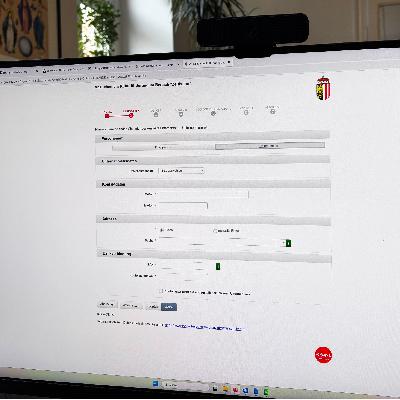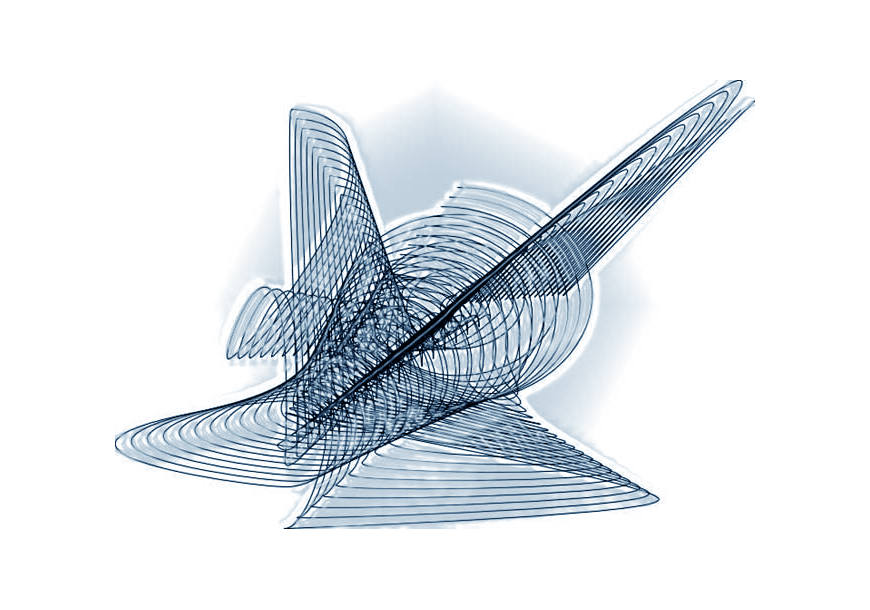Is the sun setting on Russian oil?
Description
The world waits to see if Trump’s sanctions on Russian oil might finally turn the tide in Russia’s war of aggression in Ukraine.
On 23 October, the US Treasury announced the first package of direct sanctions on Moscow under President Trump, amid the Commander in Chief’s mounting frustration with President Putin’s lack of commitment to the peace process.
Hungary goes cap in hand
The sanctions, which take effect on 21 November, target Russia’s two largest oil companies, Rosneft and Lukoil, which together account for well over half of the country’s oil production. It goes without saying that they do a great deal of business in Europe.
You might think that Trump’s sanctions don’t affect the rest of the world… but you would be wrong. In fact, any companies – or, by extension, countries – buying oil from the sanctioned Russian businesses, or helping them to circumvent these measures, are at risk of secondary sanctions from Washington. The most important of these is exclusion from the US financial system.
In Europe, the Druzhba pipeline continues to supply Russian crude oil to Hungary and Slovakia. This pipeline’s continued operation falls under an exemption to current EU sanctions. For this reason, after news of the US sanctions broke, Hungarian prime minister Viktor Orbán hotfooted it over to Washington on 7 November for a man-to-man chat.
The sanctions on the Russian oil giants are also a major headache for Bulgaria and Romania, both of which have been considering following Hungary’s lead and requesting exemptions from Washington.
Political scientist Ramūnas Vilpišauskas, from Vilnius University, tells Žinių Radijas that, based on Trump’s previous behaviour, there is perhaps no need to panic.
Ramūnas Vilpišauskas, Political Scientist (in Lithuanian):
“This uproar in Central European countries that still buy large amounts of oil and other energy resources from Russia, in addition to signals from buyers such as China or India, indicate that the US’s planned sanctions against Rosneft and Lukoil could indeed have a significant impact. At the same time, however, I would like to point out that Donald Trump’s position on such issues has changed more than once or twice over recent years.”
On his whistlestop tour of Washington, Viktor Orbán managed to secure a one-year exemption from US sanctions on Russian oil. Donald Trump gave the reason for the exemption as Hungary’s landlocked status, and hence its dependence on pipelines.
Interestingly, this timeline will see the country safely through its parliamentary elections in April, which suggests that the US president is keen to facilitate the controversial Hungarian leader’s return for another term at the helm.
Yet the simultaneous announcement that Budapest has committed to buying 600 million dollars’ worth of liquefied natural gas from the US suggests to Vilpišauskas that commercial considerations may have been more important to President Trump than ideological camaraderie.
Ramūnas Vilpišauskas, Political Scientist (in Lithuanian):
“This commercial interest suggests that Hungary will eventually have to seriously rethink its dependence on Russian supplies, which, by the way, has only increased, not decreased, since 2022. Therefore, the Hungarian government has not shown much desire to invest in reducing these dependencies so far, although there are other countries in the EU that also do not have access to the sea, but are trying to diversify their energy sources. According to analysts, Hungary could, if it so desired, negotiate the use of Croatian infrastructure, or to buy liquefied natural gas together with other EU countries. Such opportunities do seem to exist.”
Southeast Europe scramble for solutions
Meanwhile, Romania and Bulgaria are racing against the clock to keep their oil refineries up and running once US sanctions on the refineries’ Russian owners kick in next week.
In Bulgaria, the huge Lukoil-owned Burgas refinery provides the majority of the country’s energy needs. As President Rumen Radev points out, his country finds itself in a very sticky situation in the wake of recent developments.
Rumen Radev, President of Bulgaria (in Bulgarian):
“This is the biggest challenge facing the government: to ensure, first, that there is no fuel crisis and, second, that prices do not rise.”
Political scientist Ognyan Minchev, from Sofia University, tells BNR that all is not lost, though… in part thanks to Bulgaria’s status as an EU member state.
Ognyan Minchev, Political Scientist (in Bulgarian):
“Bulgaria is part of the European market and, in practice, the import of petroleum products should not be impossible, especially on a temporary basis to compensate for any deficits related to the positioning of Lukoil Bulgaria.”
This is as may be, but last Friday, Bulgarian lawmakers rushed through a bill that would grant the government sweeping powers to take control of the Burgas facility. A move that President Radev vetoed this Wednesday, citing constitutional and financial risks and sending the issue back to parliament for further consideration.
Romania is also home to a Lukoil-operated refinery, and discussions are still ongoing there as to the best course of action. Like Sofia, Bucharest is leaning towards a government takeover of the country’s Lukoil operations to avoid secondary sanctions from the US.
For its part, Germany has received assurances from Washington that Rosneft’s German-based operations will be exempt from the new sanctions for at least the next six months, since they have been under the control of the German government since 2022.
Package after package
The EU has not been resting on its laurels, of course, producing a regular stream of new sanctions packages over recent years. The bloc’s sanctions target strategic sectors including Russia’s defence industry, banking sector, international finance, shadow fleet, entities supporting Russia’s actions in Ukraine, and those enabling it to evade sanctions.
Indeed, on the day of the headline-grabbing US sanctions announcement, Brussels also unveiled its 19th such package.
This includes a plan to phase out all imports of Russian oil and gas by the end of 2027. Meanwhile, 117 additional vessels belonging to the ‘ghost fleet’ of Russian oil tankers, which have circumvented previous maritime controls, have been included on the sanctioned list. Brussels is also targeting banks and companies, including a dozen in Hong Kong and elsewhere in China, which it claims have helped Russia procure drone and weapon parts.
Four sanctions packages have been adopted by the bloc this year alone, with a fifth already in the pipeline, if you’ll pardon the pun. And Kadri Elias-Hindoalla, head of sanctions and export control at the Estonian Ministry of Foreign Affairs, tells Kuku Raadio that there is more to come.
Kadri Elias-Hindoalla, Estonian Ministry of Foreign Affairs (in Estonian):
“Economists say that the most rational thing to do would be to stop all trade with Russia. At the moment, there is no consensus within the EU to do this in one fell swoop. That’s why it is being done piecemeal. Nevertheless, over the last three years, the EU has imposed unprecedented sanctions on Russia. Compared to the pre-war period, around 60 per cent of trade is now subject to sanctions. This is significant, but it shows that we still have a long way to go. There are still goods that could be sanctioned; there are still potential energy sanctions – pipeline oil, pipeline gas – that could be imposed on Russia. We have packages 20, 21 and 22… These are all on their way.”
https://kuku.pleier.ee/uudised/euroopa-liidu-sanktsioonid-venemaale-taienevad
Any signs of light?
The question on many people’s lips, of course, is now that Trump has finally put his money where his mouth is, is this likely to bring about the long-awaited breakthrough?
One thing to bear in mind, says Szymon Kardaś, a leading energy expert at the European Council on Foreign Relations (ECFR), in an interview with BNR, is that over the course of the last decade, Moscow has become adept at ‘thinking creatively’ when it comes to circumventing sanctions.
Szymon Kardaś, Senior Policy Fellow at the European Council on Foreign Relations (in English):
“Russia has managed to set up numerous schemes that allow them to ease the pressure coming from sanctions. When it comes to the oil sector, they are using the shadow fleet to circumvent the price cap. They are using some intermediaries; some strange trading companies that are buying oil and re-exporting it around the world. [A] very important question [is] to what extent Russia would be able, together with its potential trading partners, to find new schemes that would allow them to circumvent the restrictions that came in.”
So, does he believe these latest sanctions will have no impact on the war in Ukraine?
Szymon Kardaś, Senior Policy Fellow at the European Council on Foreign Relations (in English):
“I believe that those restrictions that were imposed by the US, and also the 19th package of EU sanctions, will have an impact on Russia’s econom























